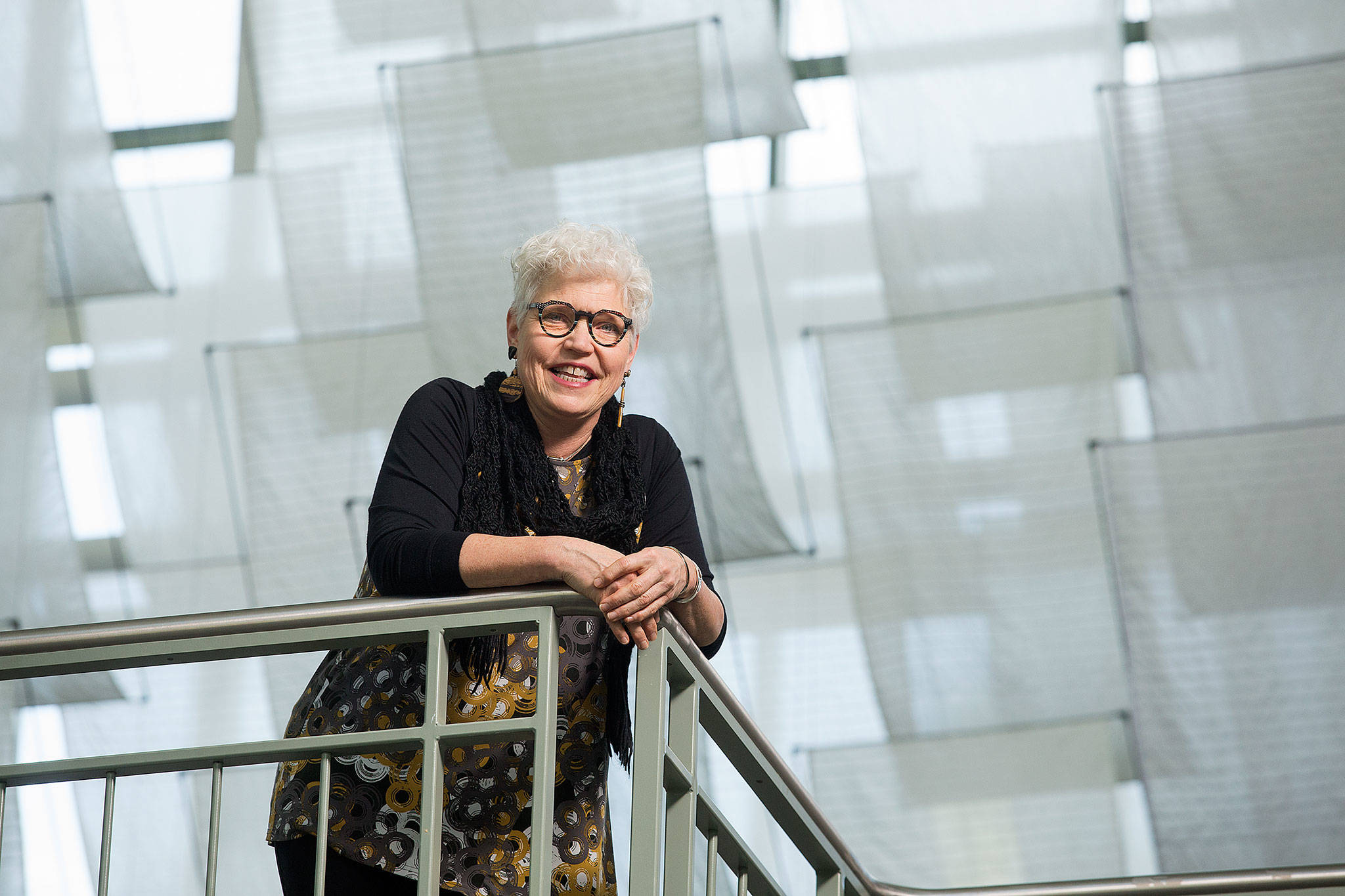In the 20 years since Leadership Snohomish County formed, more than 600 people have made their way through the program.
The goal of these alumni? To make Snohomish County a better place to live, work and play.
Kathy Coffey, who has served as Leadership Snohomish County’s executive director for four years, believes those graduates will make an effort to improve their community.
“We’ve created a network of individuals that care about where they live and want to make a difference,” she said.
Board member Kurt Hintze said the program started in its current form in 1997 when several key leaders realized that the same people were on all of the boards and started to wonder who would replace them.
Representatives of several local organizations, including the Boeing Co., the Chamber of Commerce and the United Way, came together to develop a leadership program modeled after similar programs across the state and the country.
The program got to a turning point around 2005, Hintze said. At that time, recruitment into the program had started to lag.
“The focus was on the class and not on how we could get a broader reach for the program,” said Hintze, who graduated from the program in 2003.
The board developed the executive director position and eventually branched into its own nonprofit. Coffey was hired into the executive director role four years ago. Coffey came to Leadership Snohomish County after working in the academic field for 16 years. The executive director position turned out to be a good fit for her.
“It aligns with my skill set and passion for community-building,” she said. “I’m helping people see their strengths and learning how to empower them. My definition of leadership is the empowering of others to make a difference in they best way the can.”
Coffey noted that the outreach into the program had become somewhat Everett-centered in the early 2000s, with people in the program having just one degree of separation from the Leadership Snohomish County board of directors.
The program underwent a change in its application process; now, anyone can nominate anyone in the community. Coffey believes that has expanded the nonprofit’s reach.
In addition, nominees often feel appreciated knowing that someone else has noticed their work.
“People don’t take the time to say, ‘I think you’re great,’” Coffey said.
Since 2005, the number of applicants into the program has steadily increased. This year, there were 83 nominations for 65 spots in Leadership Snohomish County’s signature class.
“It just grows every year because our economy is growing, with 200,000 people moving here in the next 10 years,” she said.
LSC offers two classes for applicants: the Signature class, which is mostly for upper level managers, and the young professionals class, for people who may be in a mid-level management role.
The young professionals class started seven years ago as a pilot program within Boeing. The class offers students the chance to learn how to manage and learn how to hone their leadership skills. Students do reading and develop a nonprofit project.
“Once you’re involved in that work and you’ve done service, your chances of staying (in the community) increase because you have friends,” she said. “You understand where you are.”
Leadership Snohomish County’s Signature program offers once a month classes on the different sectors in Snohomish County, including the courts, arts and heritage and health care.
Angela Neubauer, the development manager at Edmonds Center for the Arts, graduated from the program this past summer.
The connections she’s made through the program have been beneficial to her work, she said, as are the once-a-month luncheons Leadership Snohomish County holds for its alumni.
Neubauer has researched the history of the program and said the idea may actually stretch back to the early 1980s, when articles of incorporation were filed for a similar program.
“The dedication to this work has really been alive in Snohomish County for quite a while now,” Neubauer said.
Her research has led her to interview alumni from the program and others who have been involved throughout the years. Her favorite quote from one of her interviews was that “healthy communities don’t happen by accident.”
“I think that is so true,” Neubauer said. “All the work that leaders in the community are doing make this a healthier, more vibrant community for people.”
Leadership Snohomish County plans to continue that work into the next 20 years, as more and more people move to Snohomish County.
The board is planning an event for April that takes a look at the next 20 years in the region.
“It’s about who we are now and where we are going,” Coffey said. “Then once we define that, how do we build the bridge to get to that vision of where we’re going to be.
“The Economic Alliance is really great at bringing businesses to our region to give the people who are moving here jobs,” she added. “But we need to make sure that those people have a place to live that’s desirable, with people invested in the community and its future. So we have to work together to get that done.”
Talk to us
> Give us your news tips.
> Send us a letter to the editor.
> More Herald contact information.

























